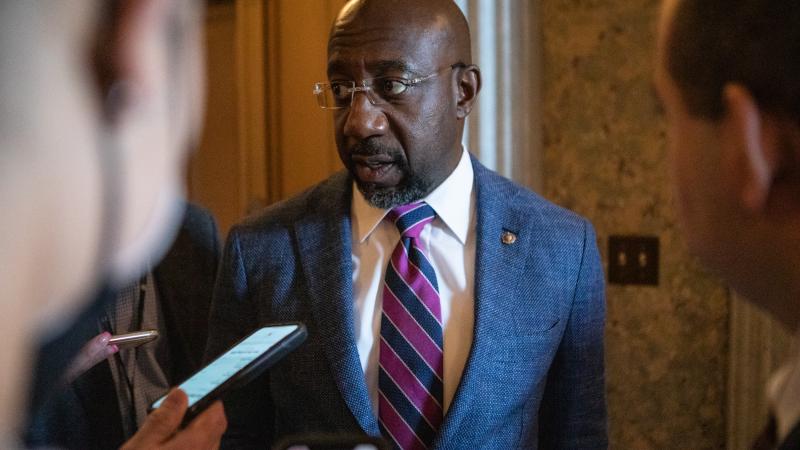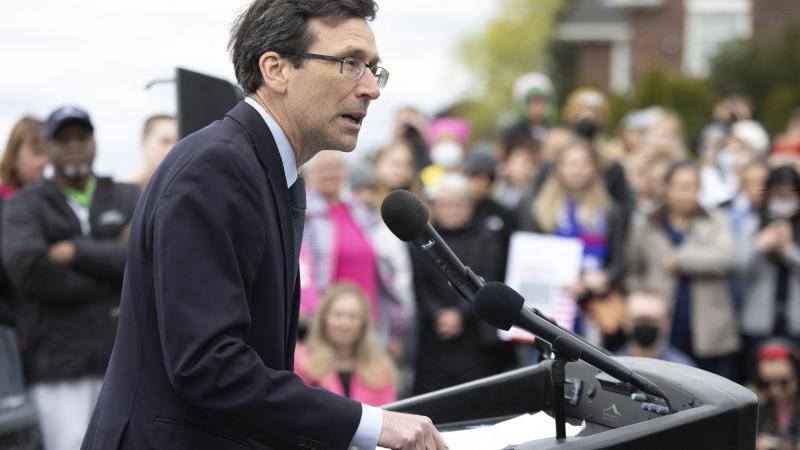Conservatives try to stop spending hikes, say feds spend $400k per person added to census
Sen. Rick Scott says "it's unconscionable" what the Biden administration wants to keep spending as the Sept. 30 appropriations deadline nears.
House and Senate conservatives are pushing to revert back to fiscal year 2022 spending levels with Sen. Rick Scott (R-Fl.) arguing that Congress must stop the Biden administration's budget proposal from advancing given that the federal government is spending $400,000 per new person added to the U.S. population since 2019.
"It's unconscionable what they're doing," said Scott on Tuesday, alongside Sen. Mike Lee (R-Ut.) and the House Freedom Caucus as the Sept. 30 appropriations deadline nears. "We're never going to get inflation under control."
Scott argued that Biden's economic policies are "hurting all of our families," noting that interest rates and inflation are at record levels and Democrats haven't shown a willingness to reduce domestic federal spending.
"We've got to stop this insanity," he said.
Scott's office told Just the News that his analysis is based on U.S. Census population data and President Biden’s $6.8 trillion budget request for FY2024 compared to FY2019 federal spending levels.
Rep. Scott Perry, (R-Pa.) chairman of the conservative caucus, emphasized that his members do not want a government shutdown to occur.
"No one here is interested in a pause in government funding. What we're interested in is taking the Biden boot off of the neck of the American people," he said at the U.S. Capitol on Tuesday. "The power of the purse is in the legislature. The way you stop all this craziness of the Biden administration, the tyranny of the Biden administration is to stop giving them money."
A spokesperson for the caucus told Just the News that its members maintain their position that the federal government should not spend more in FY2024 than it spent domestically in FY2022, which was a topline amount of $1.47 trillion. The White House has warned that Biden opposes returning to FY2022 levels, despite the rising national debt.
The nation's deficit is at $1.6 trillion as of July 2023 and the national debt is approaching $33 trillion.
"We've added $1.5 trillion since the so-called debt deal. We are now spending more on interest on the debt than we are only defending the United States of America," said Rep. Chip Roy (R-Tx.) on Tuesday.
Rep. Andy Biggs (R-Az.) who previously served as chairman of the House Freedom Caucus, suggested on Monday evening that the GOP-led House should pass a continuing resolution (CR) that would fund key government operations past the end of the fiscal year on Sept. 30, excluding funding for non-critical federal agencies and programs. Biggs said his proposal would give lawmakers a few additional weeks to hash out a possible compromise that saves money. He wants to see a return to pre-pandemic FY2019 spending levels prior to the passage of any stimulus bills.
Just the News has learned that the caucus hasn't yet formally adopted Biggs' proposal and it continues to advocate for a return to FY2022 levels, despite the White House's opposition. President Biden and House Speaker Kevin McCarthy's agreement, which raised the debt limit, included locking domestic spending at FY2023 levels in FY2024 and only allowing a 1% increase thereafter.
McCarthy's office was not available for comment on Biggs' plan or the House Freedom Caucus' position to adopt the FY2022 spending levels for FY2024 appropriations.














